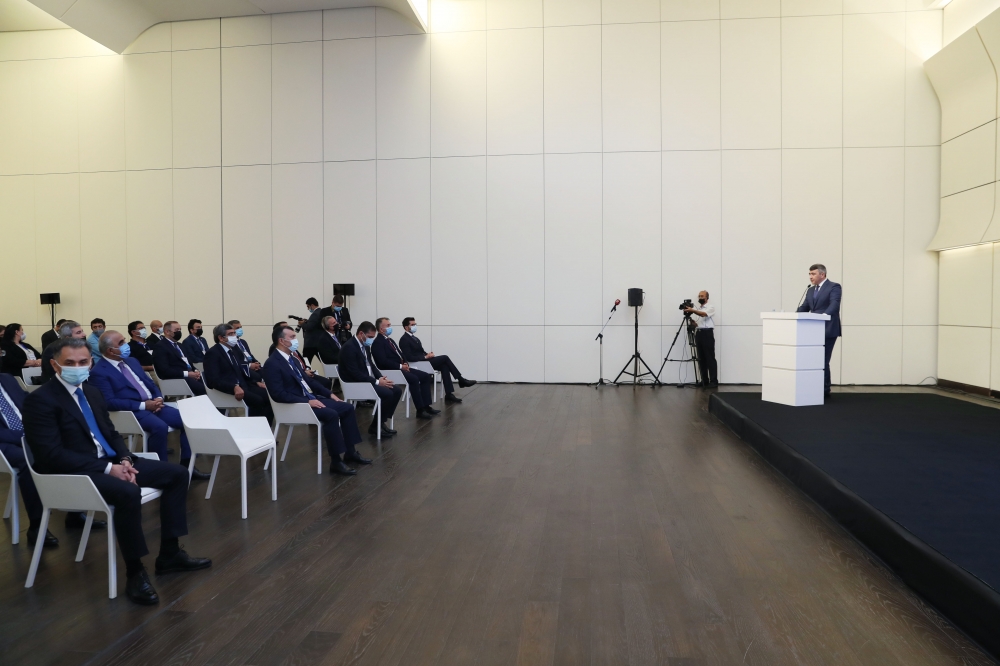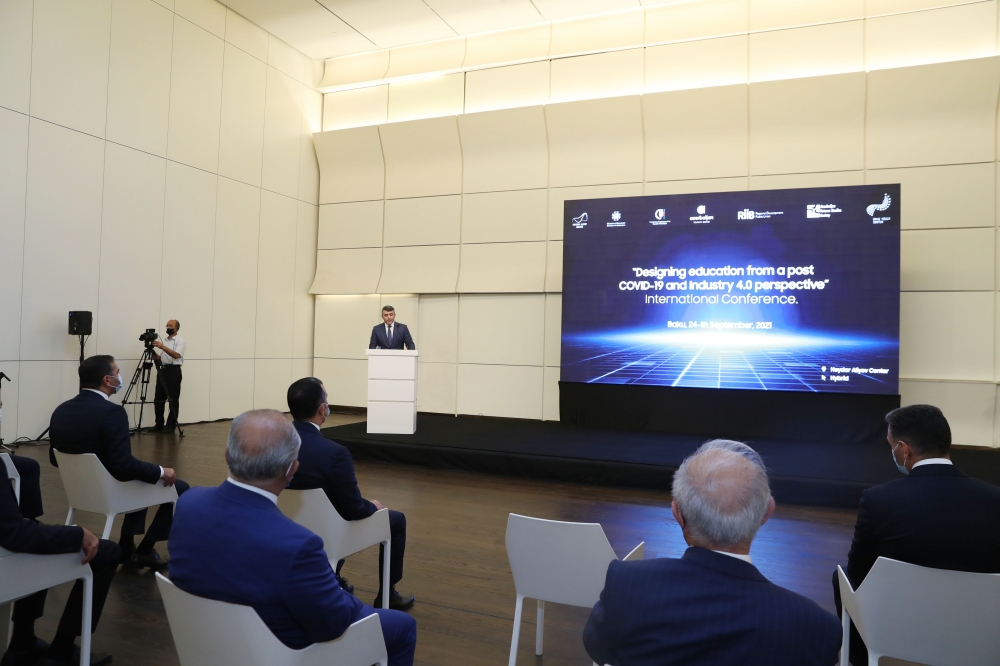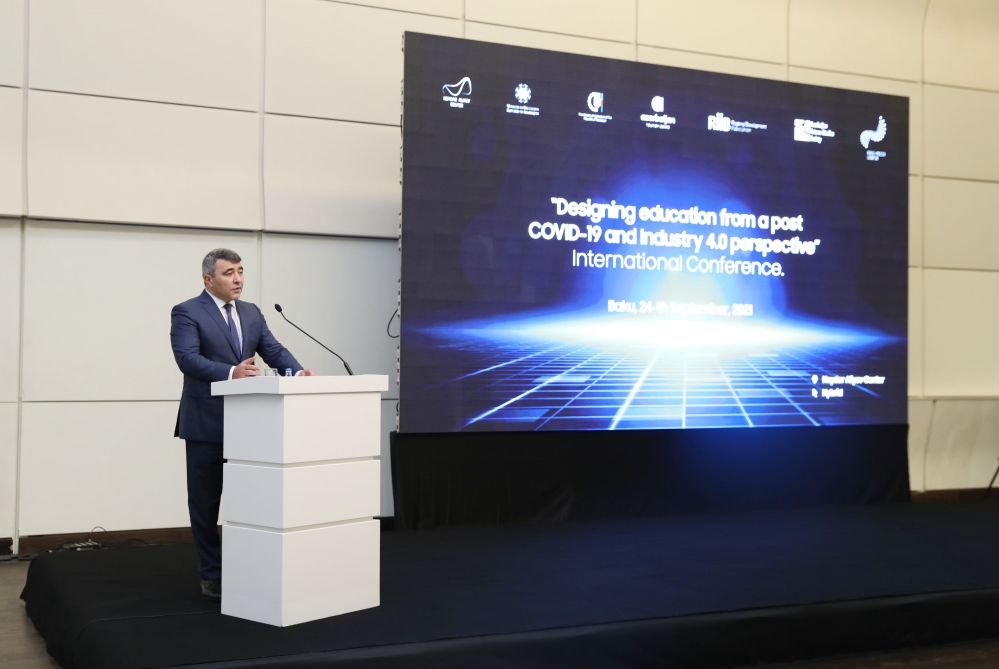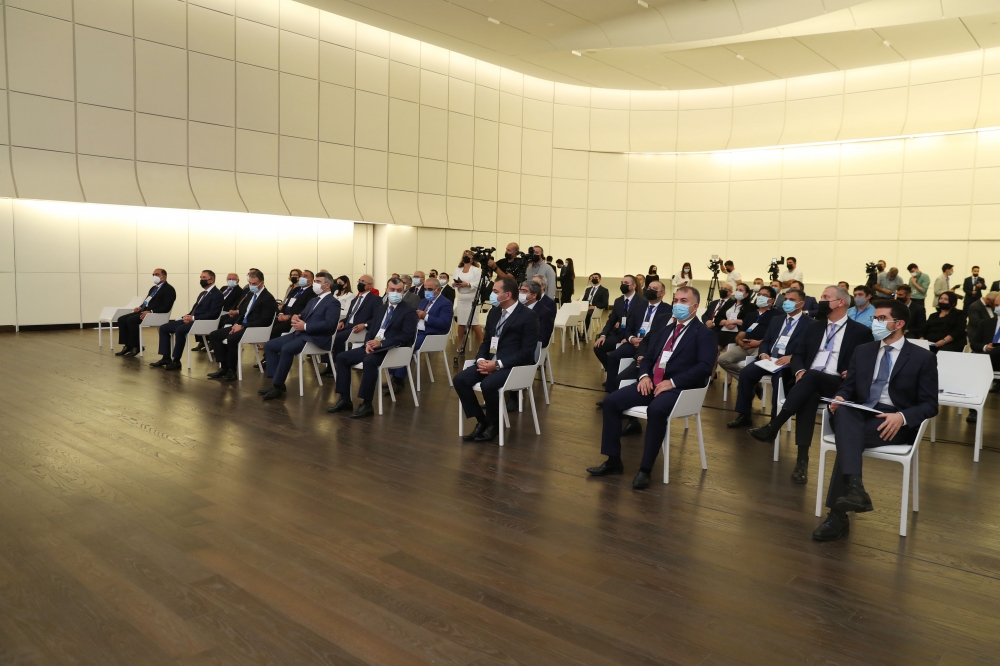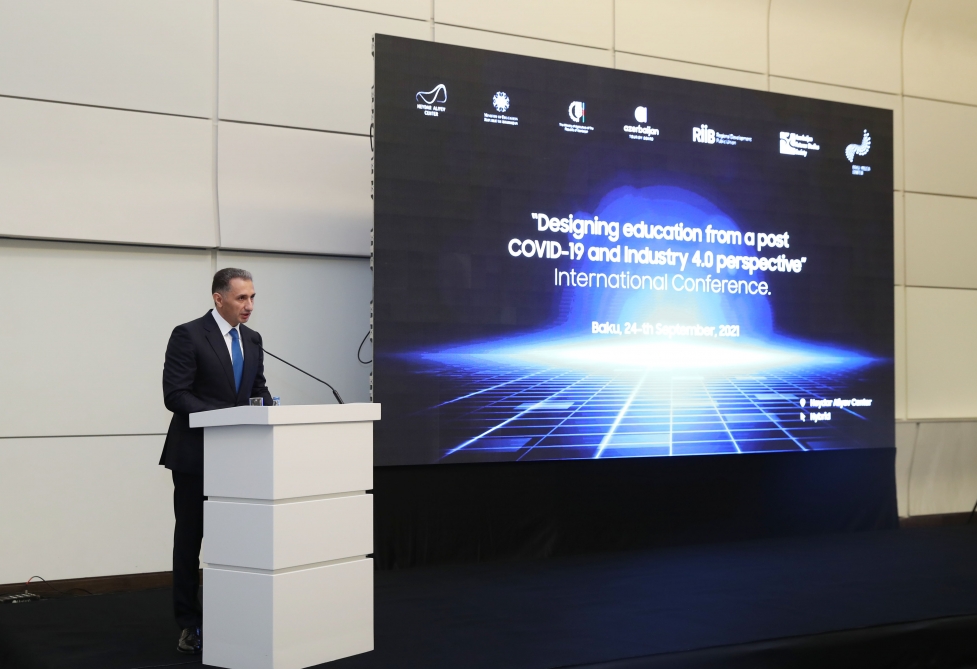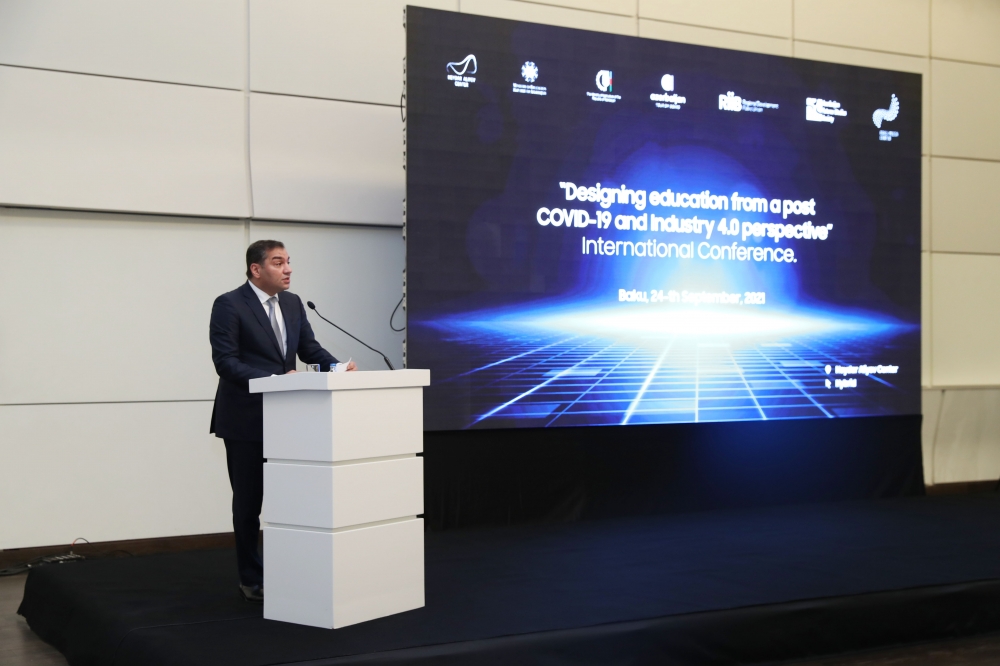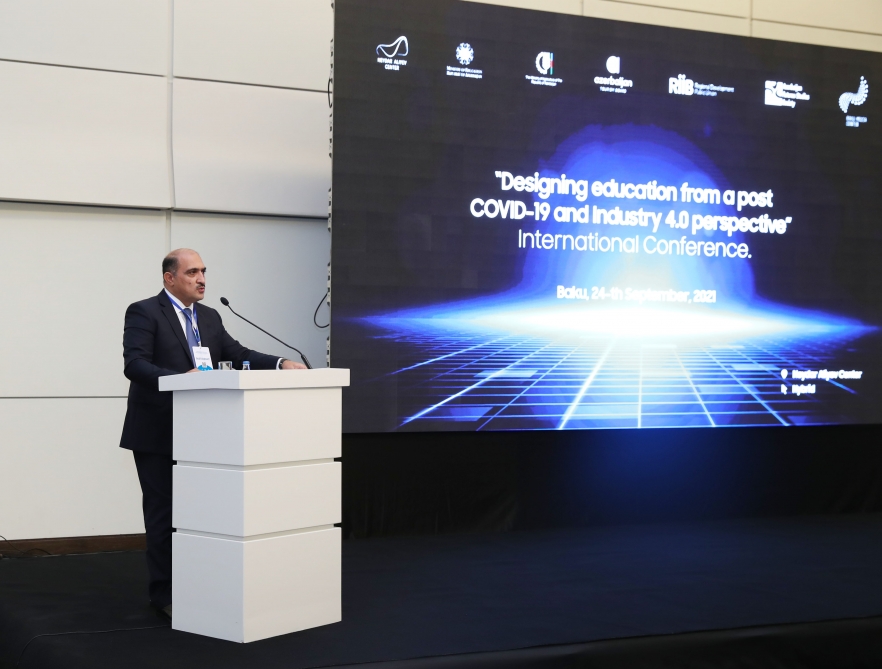International conference on "Designing education from a post-COVID-19 and the 4th Industrial Revolution perspectives» was held
On September 24, an international conference on “Designing education from a post-COVID-19 and the 4th Industrial Revolution perspectives” was held.
The main partners of the conference, organised by the Heydar Aliyev Centre, the Ministry of Education and the Ministry of Agriculture, are the Azerbaijan State Tourism Agency, the “Regional Development” Public Union, the Azerbaijan Futurologists Society’s branch of the Millennium Project in the Republic of Azerbaijan and the Baku Media Centre.
In his opening speech at the conference held at the Heydar Aliyev Center, Minister of Agriculture Inam Karimov noted that the post-COVID period differs from the pre-pandemic period not only with changes in social behavior, but also with the fact that technologies play a greater role in our lives than before. He noted that the question of what education should be in terms of the 4th industrial revolution in the post-COVID era has great relevance.
Tair Mirkishili, chairman of the National Assembly Committee on Economic Policy, Industry and Entrepreneurship, spoke about digital transformation. He said that the area where there was the most serious conservatism in digital transformation in the world was the field of education. For this reason, education design from the perspective of the 4th industrial revolution is important.
In his speech, Minister of Transport, Communications and High Technologies Rashad Nabiev noted that it is important to be open to innovations. In the world this is called learning new knowledge. It is important how fast we are adapting to new situations.
The Minister of labour and social protection of population Sahil Babayev noted that the 4th Industrial Revolution, the digital transformation have increased the need for new professions. According to the Minister, we need professionals who can carry out the digital transformation in a very serious way.
Then, in his speech, сhairman of the State Tourism Agency Fuad Nagiyev noted that education in any field has always been of special importance. Expanding educational opportunities and responding to modern challenges play an important role in the development of society and the state.
In his speech, Deputy Minister of Education Idris Isayev noted that the topic under discussion was very relevant. The Deputy Minister noted that the conduct of online learning during the pandemic had led to an increase in the digital skills of both educators and learners. This encouraged the continuation of the existing approach in the post-pandemic period. The positive trends observed during the pandemic period will also continue during the post-pandemic period. In this audience there are people who have acquired their digital skills in different ways and in different places. These people can apply different applications. Acquiring, retraining these skills, making them an integral part of the life-long learning chain, and aligning them with the demands of the digital economy are among the important issues.
Israeli ambassador to Azerbaijan George Dick noted the theme of the conference was in line with the day's challenges. He said that the aligning of knowledge and skills with the capabilities of technologies gives an additional advantage in the competitive environment.
The conference then continued with panel sessions. International experts from more than 20 countries took the floor during the panel sessions in an online format. Participants discussed the impact of digital transformation on education, agrarian sector, communications and technology, and the labour market.
The participants of the international conference also discussed topics such as “Industry 4.0 and new educational technologies”, “Knowledge Management”, “Digital Agriculture”, “Economic digitization”, “Artificial intelligence and ethics”, “Digital Age: impact on the economy and education system”, and “New professions in the digital age”. International speakers made presentations on ”Reconstruction of the labor market on the basis of new digital education requirements“, ”Current global classes for training professionals in the period of 4th Industrial Revolution“,"A new educational path for the 4th Industrial Revolution and the Internet of Things (IoT)”, ” Improving the quality of online education"," Inter-state cooperation supports the initiative on the 4th Industrial Revolution “.
It should be noted that the purpose of the international conference is to convey to the public the importance of taking the necessary measures for the formation of knowledge and skills in line with the changes taking place in various sectors of economy in connection with the new format of education that would emerge with the effects and challenges of the 4th industrial revolution.
24.09.2021 - 17:57
More News
-
A video message from Azerbaijan's Minister of Science and Education was played at a meeting on "Accelerating Progress Toward Sustainable Development Goal 4: Transformative Education Outcomes".
18.06.2024 - 12:41 -
Deputy Minister of Science and Education Hasan Hasanli participated in the Azerbaijan-United Arab Emirates (UAE) Ministers' Forum on Experience Exchange
12.06.2024 - 18:46 -
Emin Amrullayev meets with the Minister of Education and Sports of the Republic of Albania
10.06.2024 - 11:22 -
Minister of Science and Education meets with the President of the Maarif Foundation of Turkey
05.06.2024 - 16:03 -
Azerbaijan's Shusha city hosts the 7th meeting of the Scientific Council of the Turkic Academy
01.06.2024 - 14:37




